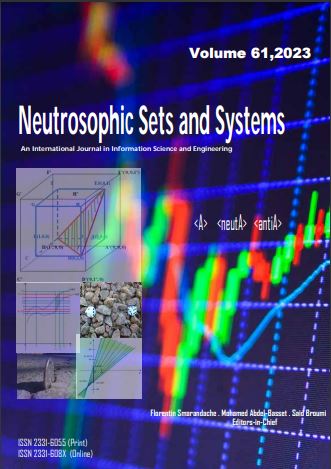Neutrosophic Estimators in Two-Phase Survey Sampling
Keywords:
Neutrosophic Statistics, Bias, Mean Square Error, Auxiliary information, Exponential Estimator, Factor-type Estimator, Two-Phase Sampling, Relative Efficiency (%)Abstract
Point estimates in survey sampling only provide a single value for the parameter being studied and are consequently vulnerable to changes caused by sampling error. In order to cope with ambiguity, indeterminacy, and uncertainty in data, Florentin Smarandache’s neutrosophic technique, which generates interval estimates with high probability, offers a helpful solution. To estimate the neutrosophic population mean of the studied variable, this research provides new neutrosophic factor type exponential estimators using well-known neutrosophic auxiliary parameters. For the first-degree of approximation, the study derives the bias and Mean
Squared Error (MSE) of the proposed estimators. Characterising constants have neutrosophic optimal values, and for these optimum values, the least value of the neutrosophic MSE is obtained. Notably, the proposed neutrosophic estimators outperform the corresponding adapted classical estimators since their estimated interval falls under the minimal MSE and lies within the estimated interval of the proposed neutrosophic estimators. The theoretical results are supported by empirical data from real data sets acquired by the “Ministry of Earth Sciences” and the “India Meteorological Department (IMD), Pune, India,” as well as simulated data sets produced via Neutrosophic Normal Distribution. The estimator with the lowest MSE is suggested for practical applications across many domains, providing greater accuracy and reliability in parameter estimation when utilising the neutrosophic methodology.
Downloads
Downloads
Published
Issue
Section
License
Copyright (c) 2023 Neutrosophic Sets and Systems

This work is licensed under a Creative Commons Attribution-NonCommercial-ShareAlike 4.0 International License.



